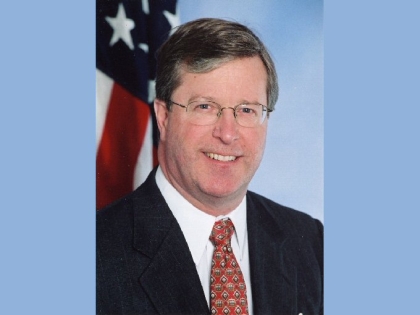
Senate Approves Comprehensive Anti-meth Legislation

Albany, N.Y.-- The New York State Senate today approved comprehensive legislation sponsored by Senator George H. Winner, Jr. (R-C, Elmira) to combat the manufacture and use of methamphetamine in the Southern Tier-Finger Lakes region and throughout New York State.
"This legislation is the product of bipartisan concern, cooperation and commitment to protect our communities from the ravages of a meth epidemic," said Winner.
The legislation has been agreed-upon by the Legislature and Governor George Pataki. It is expected to be approved by the Assembly later today and will be delivered to the governor to be signed into law.
Winner said the legislation will allow law enforcement officials to prosecute individuals who run and operate illegal, dangerous meth labs even if the individuals are not caught with the finished product.
In addition, prosecutors will be able to seek felony level convictions for possession and/or theft of anhydrous ammonia, a common agricultural fertilizer and industrial refrigerant and key ingredient in illegal meth production.
"We need tough new laws to put meth manufacturers out of business in the Southern Tier and across New York State," said Winner. "We’re giving our communities a chance to fight back."
Winner has made the enactment of anti-meth legislation a priority throughout the current legislative session. He sponsored several anti-meth measures approved by the Senate and has worked in a bipartisan effort to advance initiatives to make it easier to prosecute manufacturers of the illegal drug. The agreed-upon legislation incorporates these initiatives into a comprehensive anti-meth strategy that includes tougher new criminal penalties to outlaw the operation of clandestine labs; promote greater community awareness and education; protect children; and begin to address the environmental dangers associated with meth labs.
"The law will clear the way for more aggressive and potent law enforcement. It ensures continued vigilance through community awareness and education," said Winner. "It’s the product of a good-faith effort to recognize this danger and to begin to control the widespread addiction, violence and tragedy that would result from inaction."
Specific crimes and penalties being established by the legislation (S.5920/A.9002) are:
> Criminal Possession of Meth Manufacturing Material in the Second Degree: Possession of any one precursor, chemical reagent or solvent with intent to manufacture meth (A Misdemeanor);
> Criminal Possession of Meth Manufacturing Material in the First Degree: Possession of any one precursor, chemical reagent or solvent with intent to manufacture meth, where the individual has been previously convicted of the same crime within the preceding five years (E Felony);
> Criminal Possession of Precursors of Methamphetamine: Possession of a precursor and a solvent or reagent at the same time with intent to manufacture meth (E felony);
> Unlawful Manufacture of Methamphetamine in the Third Degree: Possession of two pieces of lab equipment and two precursors, reagents or solvents with intent to manufacture meth; or, three or more of the chemicals and one piece of lab equipment at the same time and place with intentto manufacture meth; or possession where some of the ingredients to make the drug have begun to be mixed (D Felony);
> Unlawful Manufacture of Methamphetamine in the Second Degree: Unlawful Manufacture of Methamphetamine in the Third Degree where the individual has previously been convicted of one of the meth felonies (not related to anhydrous ammonia) within the preceding five years, or if the individual operates a lab in the presence of a child (C Felony);
> Unlawful Manufacture of Methamphetamine in the First Degree: Unlawful Manufacture of Methamphetamine in the Third Degree and Second Degree where the individual was operating both in the presence of a child and had been convicted of one of the meth felonies (not related to anhydrous ammonia) within the preceding five years (B Felony);
> Unlawful Disposal of Meth Lab Material: Disposal or attempted disposal of hazardous material generated or used in making meth under circumstance creating risk to others or the environment (E felony).
The legislation will allow the New York State’s Office of Alcoholism & Substance Abuse Services to develop a statewide information program regarding meth. In addition, the New York State Police will be notified by law enforcement of every lab that is discovered and will create a database regarding these labs. Also, the Department of Environmental Conservation will be notified by the New York State Police every time a lab is found. The bill also provides for local retailers, child protective workers and EMS workers to receive educational materials regarding meth and meth labs.
Meth-related action in the Legislature gained ground throughout this legislative session following the release of a state report earlier this year warning that methamphetamine will become an increasingly dire public health and safety threat unless New York adopts new and tougher laws to combat the drug’s proliferation. The report by the State Commission of Investigation (SIC), "Methamphetamine Use & Manufacture," warned that the drug’s rapidly growing use and manufacture "poses an urgent threat to public health and safety and without new and tougher laws to combat the threat, New York could become a haven for methamphetamine users and manufacturers." It highlighted the Southern Tier as a hotbed of criminal meth activity in New York State.
"We couldn’t sit back and allow our region to provide a harbor for these illegal operations," said Winner.



